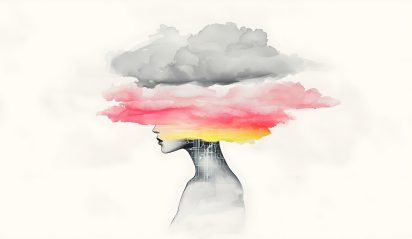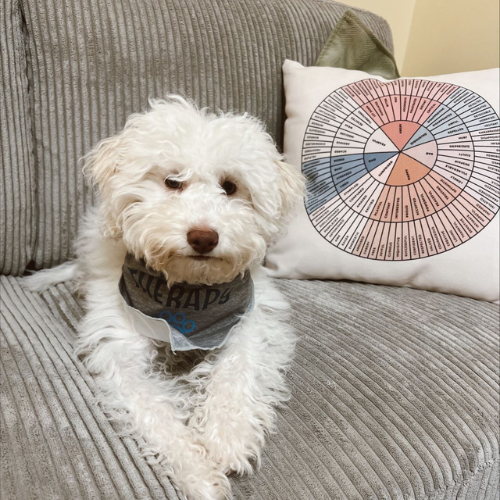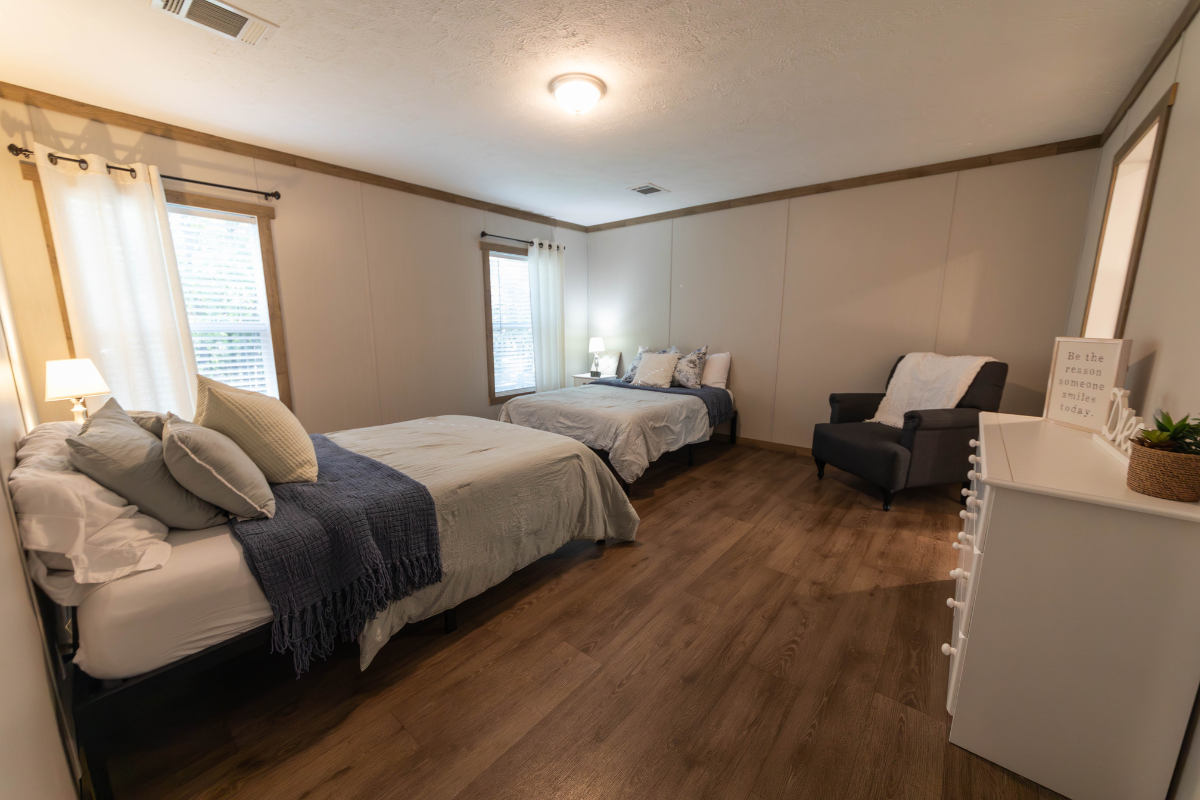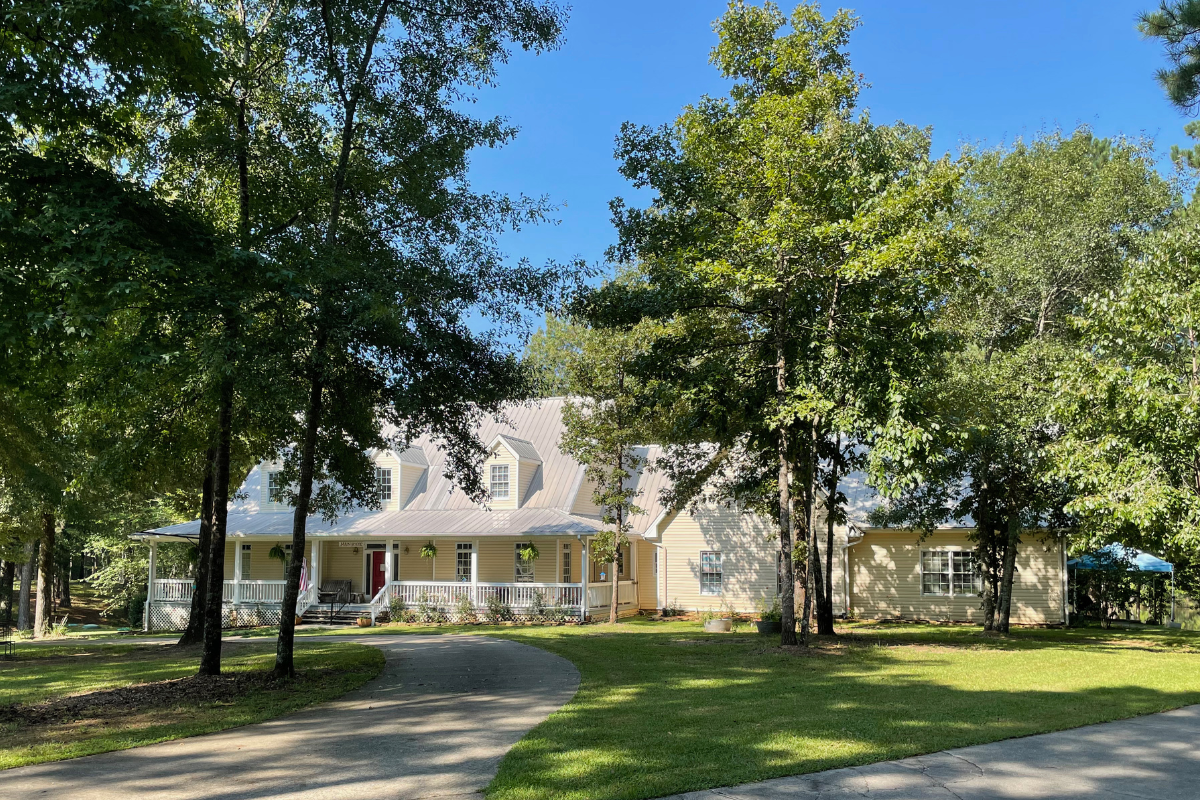When we think about anorexia nervosa, we often focus on food restriction, extreme weight loss, or fear of gaining weight. But underneath these visible struggles lies something less obvious yet deeply connected: anxiety. For many people, anxiety doesn’t just accompany anorexia; it often fuels it, shapes it, and makes recovery more complex.
Decades of research have shown that anxiety disorders like generalized anxiety, obsessive-compulsive disorder (OCD), and social anxiety frequently co-occur with anorexia nervosa, sometimes long before disordered eating behaviors surface. Understanding the relationship between these conditions (with compassion — not blame or judgment) helps us see anorexia for what it truly is: a serious mental health condition shaped by both biology and lived experience, not by personal choices, willpower, or vanity.
By exploring how anxiety and anorexia intertwine, we can break down harmful myths, reduce shame, and open doors to the kind of holistic, science-backed treatment that helps people truly heal.
What is Anorexia Nervosa?
Anorexia nervosa is a serious eating disorder where a person severely restricts what they eat because they have an intense fear of gaining weight, even if they’re already very thin. People with anorexia often see themselves as “too big” no matter how underweight they become.
Anorexia nervosa is considered the deadliest mental illness because it combines severe physical health risks with a high risk of suicide.
Medically, starvation and extreme malnutrition weaken nearly every organ system. People with anorexia can die from heart failure, electrolyte imbalances, or organ shutdown caused by the body not getting the fuel it needs to function. Even young, otherwise healthy people can suffer sudden cardiac arrest because severe weight loss changes how the heart beats and how the body manages minerals like potassium and sodium.
Psychologically, anorexia is also linked to numerous mental health conditions, including depression, obsessive thoughts, and anxiety. Many people with this illness feel trapped in a cycle of extreme fear and rigid rules, believing they don’t deserve help or fearing recovery more than the illness itself.
The Role of Anxiety
Studies published in the International Journal of Eating Disorders and the American Journal of Psychiatry consistently show that anxiety disorders—such as generalized anxiety disorder (GAD), obsessive-compulsive disorder (OCD), and social anxiety disorder—commonly co-occur with anorexia nervosa.
In fact, some research suggests that more than half of people with anorexia also meet the criteria for at least one anxiety disorder. For many, the anxiety starts years before the eating disorder.
How Are Anxiety and Anorexia Connected?
1. Control as a coping mechanism
For people with high anxiety, controlling food and weight can feel like a way to calm the chaos in their mind. Restricting eating becomes a ritual that offers a sense of certainty—something that feels predictable when everything else feels overwhelming.
2. Obsessive-compulsive traits
Many people with anorexia have obsessive-compulsive tendencies. Research shows that rituals around food, exercise, or body checking can mirror the compulsions seen in OCD. This overlap can make the eating disorder feel almost impossible to break without addressing the underlying anxiety.
3. Perfectionism
A strong perfectionistic streak is common in both anxiety disorders and anorexia. Many people with these disorders set unrealistically high standards for themselves in school, work, or physical appearance, fueling constant worry and self-criticism.
4. Fear and avoidance
Anxiety disorders often involve fear and avoidance behaviors. With anorexia, this shows up as an intense fear of gaining weight, certain foods, or situations where eating is expected. Avoidance feels safe in the short term, but it keeps the anxiety and the eating disorder alive.
How Anorexia Worsens Anxiety (And Vice Versa)
Sadly, the relationship between anorexia and anxiety can create a vicious cycle.
Severe restriction and malnutrition change brain chemistry, which can worsen anxiety symptoms. When the body is deprived of nutrients, stress hormones like cortisol can spike, making a person feel more anxious and on edge.
On the flip side, as anxiety intensifies, people may double down on restrictive eating behaviors to regain that sense of control. This can deepen the eating disorder and make recovery even harder without proper treatment for both conditions.
The Real-Life Impact
Living with both anorexia and an anxiety disorder can be exhausting. Everyday situations, such as eating with friends, going to class, or attending social events, can feel overwhelming or impossible. Many people feel trapped in a cycle of rituals and rules just to keep their anxiety at bay.
Unfortunately, the shame and secrecy that often surround both anorexia and anxiety keep people silent. Many individuals blame themselves or fear being judged for not having “more control.” But the truth is, anorexia and anxiety are not choices; they are serious mental health conditions that can form a complex, interdependent relationship with one another. Without specialized treatment, a person with these disorders can stay stuck in the same cycles for years while their mental and physical health deteriorates.
How Integrated Treatment Can Change Everything
People with eating disorders and co-occurring mental health conditions—like anxiety, depression, or trauma—rarely achieve lasting recovery if only one condition is treated, because these struggles are deeply intertwined.
When someone with anorexia uses strict food rules to manage the symptoms of an anxiety disorder, each condition is actively worsening the other. If only the eating behaviors are treated—without addressing the underlying anxiety—the root fear and distress stay the same. This makes relapse much more likely because the person hasn’t learned healthier ways to cope with the thoughts or emotions that drive their disordered eating in the first place.
Similarly, if treatment only targets anxiety or depression without tackling the eating disorder, the person may still cling to harmful food behaviors as a “coping tool.” The untreated eating disorder can then worsen depression and anxiety through malnutrition, isolation, shame, and physical stress on the brain and body.
Evidence shows that integrated, specialized treatment (where both the eating disorder and the mental health condition are addressed together) is the gold standard for real, sustained recovery. Treating both conditions at once helps people replace unhealthy coping patterns, heal physically and emotionally, and build skills for lasting health and resilience.
What does integrated treatment look like?
1. Integrated therapy
Cognitive Behavioral Therapy (CBT) is one of the most effective approaches for both anorexia and anxiety. It helps people challenge anxious thoughts, reduce avoidance, and build healthier coping skills.
2. Exposure and response prevention (ERP)
For people with OCD traits, ERP—an approach often used for OCD—can help address the rituals and compulsive behaviors that overlap with anorexia.
3. Medical and nutritional care
Restoring physical health is critical. Nutritional counseling and medical monitoring help the body heal, which also supports the brain in managing anxiety.
4. Medication
In some cases, medications like SSRIs may help reduce anxiety symptoms, making it easier to engage in therapy and recovery.
5. Compassionate support
Family therapy and peer support can help break isolation and create a safety net of understanding and accountability.
Taking a Step Towards Healing
Anxiety and anorexia nervosa often go hand in hand because controlling food can feel like a way to calm overwhelming worry or fear. But this coping strategy quickly becomes a harmful cycle. Research shows that treating both together, using therapies like CBT, exposure therapy, and nutritional support, helps people break rigid food rules, manage anxious thoughts, and heal both body and mind.
Integrated treatment works because it addresses the root fears and the eating disorder at the same time, offering real hope for lasting recovery. No one should have to face either struggle alone; you deserve to heal and reclaim your life.
Magnolia Creek is dually licensed to treat eating disorders and a multitude of co-occurring disorders. We tailor our treatment plans to individual needs and goals while empowering every client in our care to embrace recovery with resilience and independence.
Sources
Kaye, W. H., et al. Anxiety disorders and anorexia nervosa. Am. J. Psychiatry, 161(12).
Godart, N., et al. Comorbidity of anxiety disorders and anorexia. Eur. Psychiatry, 17(3).
Halmi, K. A., et al. Obsessive-compulsive features and anorexia. Int. J. Eat. Disord., 21(2).
Raney, T. J., et al. Perfectionism, anxiety, and anorexia. J. Psychiatr. Res., 44(5).
Steinglass, J. E., et al. Treatment implications for comorbid anxiety. Psychiatr. Clin. North Am., 44(3).















































